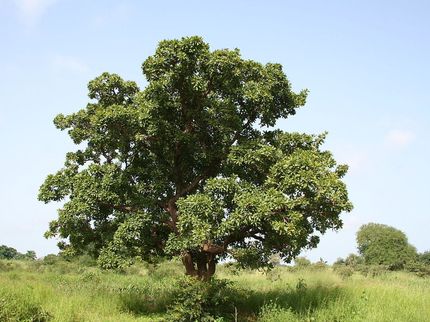Tea makes a lasting impression on consumers
Under the title "People enjoy tea. Tea enjoys trust." the German Tea & Herbal Tea Association has published its latest Tea Report, in which it draws a positive conclusion for the tea year 2022. Teas, herbal and fruit teas are not only becoming more and more popular with us, as valuable foodstuffs and part of a mindful lifestyle they also remain permanently present in everyday life.
Popularity in liters and tons
2022 was another good tea year in Germany. 69.1 liters were consumed per capita per year in this country, of which 41.3 liters were herbal and fruit teas and 27.8 liters were black and green teas. Almost 60,000 tons of tea were imported from all over the world by German manufacturers. At 1.1 liters per capita and year, consumption thus remained well above the pre-Corona level.
But please organic and more colorful
German tea fans have high expectations of their favorite beverage! Even in times of increased price sensitivity among consumers, organic teas continued to be in high demand. At 15.6% of products, the organic share remained remarkably high. In addition, among the herbal and fruit teas, blends and innovative new products such as Cold Brews or Functional Teas continued to gain in importance, while mono classics such as peppermint, chamomile and fennel remained in stable demand as reliable greats.
Tea is everywhere
Anyone who wants to buy or drink tea in Germany can get it almost everywhere. After Corona, consumption in the catering trade rose again. While food retailers and discounters were the first places to buy tea, herbal and fruit teas during the Corona period, specialty tea stores, among others, regained importance as a source of supply. This is also a sign that tea fans like to take a closer look at their favorite beverage and are inspired by its diversity. "In times of Corona, many consumers have discovered teas, herbal and fruit teas as a welcome enrichment of their everyday life and now remain loyal to them. Among young people in particular, the number of tea fans is rising steadily," says Frank Schübel, Chairman of the German Tea & Herbal Tea Association, commenting on the current market trend.
Sustainability moves the industry
The consequences of climate change have long been important issues in the tea industry, which depends on natural raw materials. Even if the tea industry supports the objective, the EU's Green Deal or the complex Supply Chain Sourcing Obligations Act pose major challenges for the predominantly medium-sized companies. Maximilian Wittig, Managing Director of the German Tea & Herbal Tea Association, comments: "Many of our member companies, which traditionally have personal ties to the countries of origin, experience the effects of climate change first-hand on site. This is one of the reasons why we have made sustainability a central component of our association strategy. We are working closely with our members on the path to greater sustainability at all levels."
Insight and outlook
Having already drawn a positive balance in the Tea Report 2022, Frank Schübel believes the German tea industry is also in a strong position for 2023: "Appreciation for tea in all its diversity has increased noticeably during and after the pandemic. With their many positive properties, teas, herbal and fruit teas are now steadily gaining in importance among consumers."
Note: This article has been translated using a computer system without human intervention. LUMITOS offers these automatic translations to present a wider range of current news. Since this article has been translated with automatic translation, it is possible that it contains errors in vocabulary, syntax or grammar. The original article in German can be found here.
Most read news
Other news from the department business & finance

Get the food & beverage industry in your inbox
By submitting this form you agree that LUMITOS AG will send you the newsletter(s) selected above by email. Your data will not be passed on to third parties. Your data will be stored and processed in accordance with our data protection regulations. LUMITOS may contact you by email for the purpose of advertising or market and opinion surveys. You can revoke your consent at any time without giving reasons to LUMITOS AG, Ernst-Augustin-Str. 2, 12489 Berlin, Germany or by e-mail at revoke@lumitos.com with effect for the future. In addition, each email contains a link to unsubscribe from the corresponding newsletter.





























































